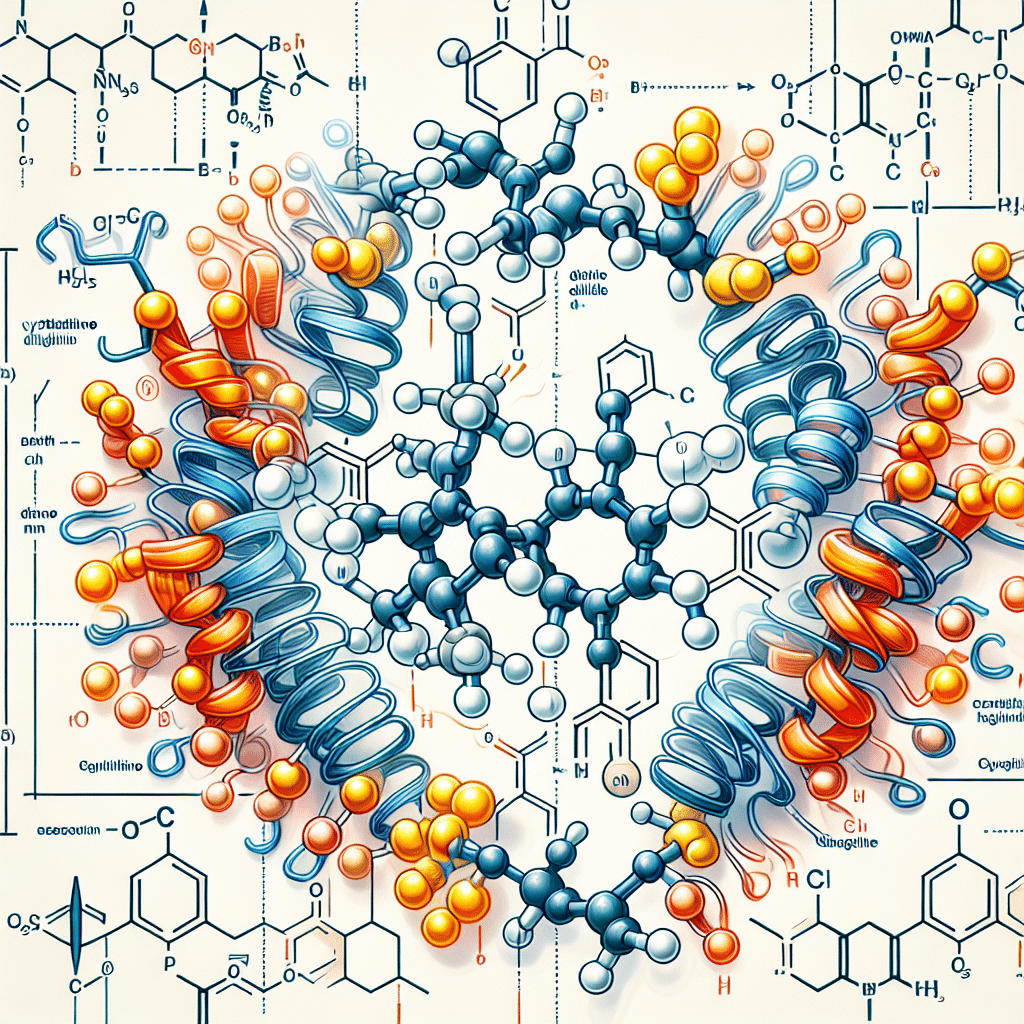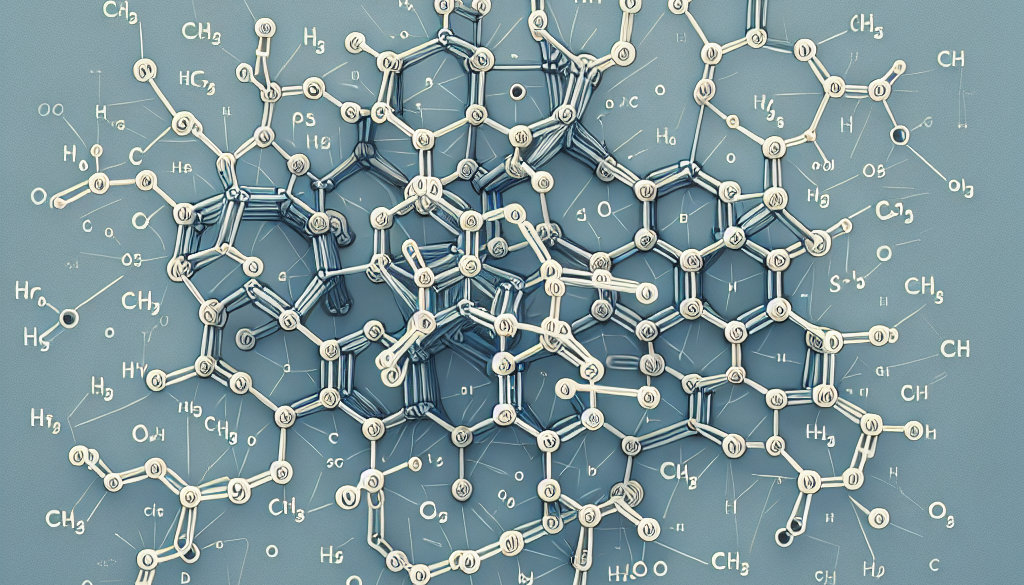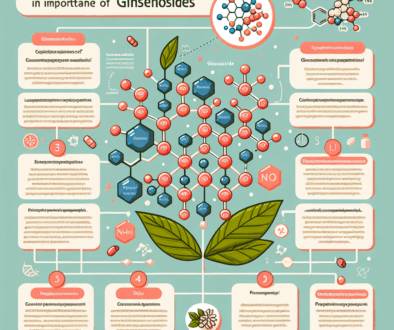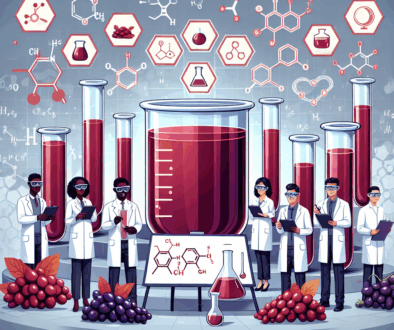Cysteine-Glutathione Disulfide Inhibitor: Overview
-
Table of Contents
- Cysteine-Glutathione Disulfide Inhibitors: A Comprehensive Overview
- Understanding Cysteine-Glutathione Disulfide
- The Role of Cysteine-Glutathione Disulfide Inhibitors
- Therapeutic Applications and Research
- Neurodegenerative Diseases
- Cardiovascular Health
- Cancer Treatment
- Case Studies and Statistics
- Challenges and Future Directions
- Conclusion
- Discover ETprotein’s High-Quality Protein Products
Cysteine-Glutathione Disulfide Inhibitors: A Comprehensive Overview

Understanding the intricate workings of the human body at the molecular level has been a cornerstone of medical research and pharmaceutical development. One such area of study involves the role of cysteine-glutathione disulfide and its inhibitors. These compounds play a critical role in maintaining the delicate balance of oxidative stress and antioxidant defense mechanisms within the body. This article delves into the science behind cysteine-glutathione disulfide inhibitors, their potential therapeutic applications, and the latest research findings.
Understanding Cysteine-Glutathione Disulfide
Before we explore the inhibitors, it is essential to understand what cysteine-glutathione disulfide (CySSG) is and its significance in the body. CySSG is a disulfide formed between the thiol groups of cysteine and glutathione. Glutathione is a tripeptide composed of glutamine, cysteine, and glycine, and it is one of the most important antioxidants in the body, protecting cells from oxidative damage.
- Glutathione in its reduced form (GSH) is capable of donating a reducing equivalent (H+/e-) to other unstable molecules, such as reactive oxygen species (ROS).
- During this process, GSH is converted to its oxidized form, glutathione disulfide (GSSG).
- CySSG forms when there is an interaction between GSSG and free cysteine residues, which can occur under conditions of oxidative stress.
The balance between reduced glutathione and CySSG is a critical indicator of cellular oxidative stress and is important for maintaining redox homeostasis.
The Role of Cysteine-Glutathione Disulfide Inhibitors
Cysteine-glutathione disulfide inhibitors are compounds that can prevent the formation of CySSG or facilitate its reduction back to GSH and free cysteine. These inhibitors have the potential to enhance the antioxidant capacity of cells and protect against oxidative damage.
- Inhibitors can act by increasing the activity of enzymes like glutathione reductase, which reduces GSSG to GSH.
- They may also provide cysteine residues that can compete with GSSG, preventing CySSG formation.
- Some inhibitors are designed to mimic the structure of CySSG, thus acting as decoys to prevent its accumulation.
The therapeutic potential of these inhibitors is vast, as they could be used to treat a range of diseases where oxidative stress is a contributing factor, including neurodegenerative diseases, cardiovascular diseases, and certain types of cancer.
Therapeutic Applications and Research
Research into cysteine-glutathione disulfide inhibitors has uncovered several promising therapeutic applications. Here are some areas where these inhibitors are being studied:
Neurodegenerative Diseases
Oxidative stress is a known contributor to the progression of neurodegenerative diseases such as Alzheimer’s and Parkinson’s. Cysteine-glutathione disulfide inhibitors may help to protect neurons from oxidative damage and slow disease progression.
Cardiovascular Health
Oxidative stress can lead to endothelial dysfunction and atherosclerosis. By maintaining redox balance, cysteine-glutathione disulfide inhibitors could potentially reduce the risk of heart attacks and strokes.
Cancer Treatment
Some cancer cells exhibit high levels of oxidative stress, which they can exploit to promote survival and proliferation. Targeting the redox balance with cysteine-glutathione disulfide inhibitors could make cancer cells more susceptible to chemotherapy and radiation therapy.
Case Studies and Statistics
Several studies have highlighted the potential benefits of cysteine-glutathione disulfide inhibitors. For instance, research on animal models of neurodegenerative diseases has shown that these inhibitors can improve cognitive function and reduce neuronal loss. In the context of cardiovascular health, clinical trials have demonstrated improved endothelial function with the use of these inhibitors.
Statistics from these studies often reveal significant improvements in biomarkers of oxidative stress, such as decreased levels of CySSG and increased levels of GSH in treated subjects compared to controls.
Challenges and Future Directions
While the therapeutic potential of cysteine-glutathione disulfide inhibitors is promising, there are challenges to overcome. These include ensuring the bioavailability and stability of the inhibitors, as well as understanding their long-term effects. Future research will likely focus on developing more potent and selective inhibitors, as well as conducting large-scale clinical trials to establish their efficacy and safety in humans.
Conclusion
Cysteine-glutathione disulfide inhibitors represent a promising avenue for therapeutic intervention in diseases associated with oxidative stress. By maintaining the balance between antioxidants and oxidants, these inhibitors can protect cells from damage and contribute to overall health. As research progresses, we may see these compounds play an increasingly important role in the treatment of various diseases.
Discover ETprotein’s High-Quality Protein Products
In addition to exploring the potential of cysteine-glutathione disulfide inhibitors, it’s important to consider the role of high-quality protein products in supporting overall health. ETprotein offers a range of organic bulk vegan proteins and L-(+)-Ergothioneine (EGT) that can complement a healthy lifestyle and dietary needs.
Whether you’re a manufacturer looking for premium ingredients or an individual seeking to enhance your nutrition, ETprotein’s products are characterized by their neutral taste, non-GMO, allergen-free attributes, and high purity levels. Their offerings cater to a diverse range of industries, ensuring that you have access to the best protein solutions available.
About ETprotein:
ETprotein, a reputable protein and L-(+)-Ergothioneine (EGT) Chinese factory manufacturer and supplier, is renowned for producing, stocking, exporting, and delivering the highest quality organic bulk vegan proteins and L-(+)-Ergothioneine. They include Organic rice protein, clear rice protein, pea protein, clear pea protein, watermelon seed protein, pumpkin seed protein, sunflower seed protein, mung bean protein, peanut protein, and L-(+)-Ergothioneine EGT Pharmaceutical grade, L-(+)-Ergothioneine EGT food grade, L-(+)-Ergothioneine EGT cosmetic grade, L-(+)-Ergothioneine EGT reference grade and L-(+)-Ergothioneine EGT standard. Their offerings, characterized by a neutral taste, non-GMO, allergen-free attributes, with L-(+)-Ergothioneine purity over 98%, 99%, cater to a diverse range of industries. They serve nutraceutical, pharmaceutical, cosmeceutical, veterinary, as well as food and beverage finished product distributors, traders, and manufacturers across Europe, USA, Canada, Australia, Thailand, Japan, Korea, Brazil, and Chile, among others.
ETprotein specialization includes exporting and delivering tailor-made protein powder and finished nutritional supplements. Their extensive product range covers sectors like Food and Beverage, Sports Nutrition, Weight Management, Dietary Supplements, Health and Wellness Products, and Infant Formula, ensuring comprehensive solutions to meet all your protein needs.
As a trusted company by leading global food and beverage brands and Fortune 500 companies, ETprotein reinforces China’s reputation in the global arena. For more information or to sample their products, please contact them and email sales(at)ETprotein.com today.












